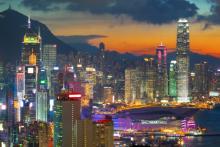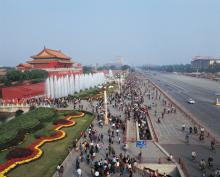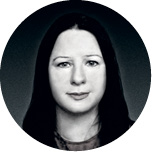Want to make sure your degree leads to strong international employment prospects? Then you may be interested to find out which cities’ graduates are in highest demand among employers.
Below are the top 10 cities for employer activity, based on the 2014 QS Best Student Cities. One of five categories used to compile the overall index, the Employer Activity score is based on surveys of employers worldwide, who were asked to identify the universities they believe produce the best graduates.
Each city is awarded a score based on the number of employers who identify at least one of its institutions as producing excellent graduates, with extra points awarded for international employers. The aim is to give an idea of which cities’ universities are held in highest esteem not only by employers in the local area, but globally.
The cities listed below all also meet the general criteria for inclusion in the Best Student Cities list: a population over 250,000 and at least two QS-ranked institutions.
Best Student Cities for Employer Activity
1. Singapore
With the maximum possible score for employer activity, this year’s top performing city/state of Singapore also scores highly in the overall QS Best Student Cities, coming third out of 50 cities (Paris came first; London second). The two top universities in Singapore have climbed a total of 40 places in the QS World University Rankings® since 2008: National University of Singapore from 30th to 24th; and Nanyang Technological University from 77th to 41st.
possible score for employer activity, this year’s top performing city/state of Singapore also scores highly in the overall QS Best Student Cities, coming third out of 50 cities (Paris came first; London second). The two top universities in Singapore have climbed a total of 40 places in the QS World University Rankings® since 2008: National University of Singapore from 30th to 24th; and Nanyang Technological University from 77th to 41st.
According to the latest Global Competitiveness Index (GCI), Singapore’s innovation-driven economy is the second most competitive in the world (Switzerland is first), and comes first in labor market efficiency. Little wonder that it comes second out of 148 states in its ability to attract talent. It also comes second in financial market development, which includes sound business investment.
Top universities: National University of Singapore (NUS); Nanyang Technological University (NTU)
2= Hong Kong
Hong Kong follows Singapore closely with a score of 96 for employer activity, and is ranked seventh in the Best Student Cities overall. The city’s top five institutions (listed below in ranked order) have been consistently within the top 200 in the QS World University Rankings since 2009, and a new institution, Lingnan University, has been added since last year.
Singapore closely with a score of 96 for employer activity, and is ranked seventh in the Best Student Cities overall. The city’s top five institutions (listed below in ranked order) have been consistently within the top 200 in the QS World University Rankings since 2009, and a new institution, Lingnan University, has been added since last year.
Hong Kong performs very well on the GCI, with an overall rank of 7. It comes first for financial market development, hiring and firing practices, and pay and productivity, and fifth for its ability to attract talent.
Top universities: University of Hong Kong (HKU); Hong Kong University of Science and Technology (HKUST); Chinese University of Hong Kong (CUHK); City University of Hong Kong; Hong Kong Polytechnic University; Hong Kong Baptist University (HKBU); Lingnan University (Hong Kong)
2= Milan
Like Hong Kong, Milan scores 96 for employer activity. As the industrial, commercial and financial center of Italy, Milan hosts the country’s largest banks and companies, including the Italian Stock Exchange. Its focus on business is echoed in the achievements of Università Commerciale Luigi Bocconi, which is the top university in Italy for social sciences and management subjects (ranking 29th in the world, based on the QS World University Rankings by Faculty), including economics.
scores 96 for employer activity. As the industrial, commercial and financial center of Italy, Milan hosts the country’s largest banks and companies, including the Italian Stock Exchange. Its focus on business is echoed in the achievements of Università Commerciale Luigi Bocconi, which is the top university in Italy for social sciences and management subjects (ranking 29th in the world, based on the QS World University Rankings by Faculty), including economics.
Top universities: Politecnico di Milano; Università degli Studi di Milano; Università Cattolica del Sacro Cuore; University of Milano-Bicocca ; Università Commerciale Luigi Bocconi
4= Paris
Paris comes top of the overall Best Student Cities index for the second year running, and fourth for employer activity with a score of 95. As the most populous city in France and with no less than 17 ranking Parisian universities, employers have plenty of choice among graduates.
of the overall Best Student Cities index for the second year running, and fourth for employer activity with a score of 95. As the most populous city in France and with no less than 17 ranking Parisian universities, employers have plenty of choice among graduates.
Top universities: Ecole Normale Supérieure, Paris (ENS Paris)[28]; Ecole Polytechnique ParisTech; Université Pierre et Marie Curie (UPMC); Université Paris-Sud 11; Université Paris Diderot - Paris 7; Sciences Po Paris; Université Paris-Sorbonne (Paris IV); Université Paris 1 Panthéon-Sorbonne ; Université Paris Descartes; École des Ponts ParisTech; Ecole Normale Supérieure de Cachan; Université Paris Dauphine; Université Panthéon-Assas (Paris 2); Université Paris Ouest Nanterre La Défense; ESCP Europe; ESSEC Business School, Paris; HEC Paris
4= London
Scoring the  same as Paris for employer activity (95 out of 100), London just misses the top spot overall for best student city, losing some points for affordability. The UK’s capital and financial center is complemented by the largest number of top ranking institutions out of all the best student cities, including two that rank within the top 10 overall in the world: University College London (4th) and Imperial College London (5th). And the London School of Economics and Political Science (LSE) ranks 2nd worldwide for its social sciences and management faculty.
same as Paris for employer activity (95 out of 100), London just misses the top spot overall for best student city, losing some points for affordability. The UK’s capital and financial center is complemented by the largest number of top ranking institutions out of all the best student cities, including two that rank within the top 10 overall in the world: University College London (4th) and Imperial College London (5th). And the London School of Economics and Political Science (LSE) ranks 2nd worldwide for its social sciences and management faculty.
Top universities: UCL (University College London); Imperial College London; King's College London (KCL); London School of Economics and Political Science (LSE); Queen Mary, University of London (QMUL); Royal Holloway University of London; SOAS - School of Oriental and African Studies, University of London ; City University London; Brunel University; Birkbeck College, University of London; Goldsmiths, University of London; Kingston University, London; Middlesex University; London Metropolitan University; University of Greenwich; University of East London; London Business School; London School of Hygiene & Tropical Medicine
6. Tokyo
Tokyo’s score of 91 out of 100 for employer activity is perhaps unsurprising, considering its consistently strong performance in the Global 500, which lists the world’s top 500 corporations by revenue. Japan came 3rd last year in terms of the amount of listed companies (68), and around 70% of those companies are located in Tokyo.
91 out of 100 for employer activity is perhaps unsurprising, considering its consistently strong performance in the Global 500, which lists the world’s top 500 corporations by revenue. Japan came 3rd last year in terms of the amount of listed companies (68), and around 70% of those companies are located in Tokyo.
The world’s most populous metropolis, Tokyo is home to 11 universities ranked by QS, including Japan’s leading institution, the University of Tokyo (32nd in the world).
Top universities: The University of Tokyo; Tokyo Institute of Technology; Keio University; Waseda University; Tokyo Medical and Dental University ; Tokyo University of Science; Tokyo Metropolitan University; Tokyo University of Agriculture and Technology ; Ochanomizu University; Aoyama Gakuin University; Hitotsubashi University
7= Sydney
Australia’s largest and most densely populated city scores the same for employer activity (90 out of 100) as the remaining three on the list. But overall, it comes much higher, ranked 4th in the world, winning extra points for quality of living.
and most densely populated city scores the same for employer activity (90 out of 100) as the remaining three on the list. But overall, it comes much higher, ranked 4th in the world, winning extra points for quality of living.
Around half of Australia’s top 500 companies are located in New South Wales (NSW), and most of those can be found in Sydney. It is the business and financial capital of NSW and accounts for 32% of Australia’s GDP. Two of its institutions rank within the world’s top 100: the University of Sydney and the University of New South Wales.
Top universities: University of Sydney; University of New South Wales (UNSW)[52]; Macquarie University; University of Technology, Sydney (UTS); University of Western Sydney
7= Melbourne
Following closely behind Sydney in the overall Best Student Cities at 5th in the world, Melbourne loses points for affordability and quality of living, but scores the maximum 100 for student mix.
behind Sydney in the overall Best Student Cities at 5th in the world, Melbourne loses points for affordability and quality of living, but scores the maximum 100 for student mix.
The relatively new Docklands development (which became part of the city in 2007) is now the headquarters for major corporations, such as the National Australia Bank, the Australia and New Zealand Banking Group and BHP Billiton. This means that three of the nine Australian companies listed in 2012’s Global 500 are in Melbourne. The area is still being developed, and is expected to be a major source of employment when it’s completed.
Australia’s second and sixth highest ranking institutions, the University of Melbourne (31st in the world) and Monash University (69th in the world), are located in the city.
Top universities: University of Melbourne; Monash University; RMIT University; Deakin University; La Trobe University; Swinburne University of Technology; Victoria University
7= Boston
Boston is always going to be a popular choice, hosting the first and second leading institutions in the world (Massachusetts Institute of Technology and Harvard University), which have been consistently in the global top 10 since 2008.
going to be a popular choice, hosting the first and second leading institutions in the world (Massachusetts Institute of Technology and Harvard University), which have been consistently in the global top 10 since 2008.
Although Boston’s institutions are excellent, it falls down a bit on affordability, but this hasn’t affected its score of 90 out of 100 for employer activity.
It has recently ranked in the top quarter of the Forbes list of ‘Best Places for Business and Careers’ , where it came 38 out of 200 US cities. It also ranks 53rd for jobs growth.
Top universities: Massachusetts Institute of Technology (MIT); Harvard University; Boston University; Tufts University; Brandeis University; Boston College; Northeastern University
7= Beijing
Finally, rounding out the top 10 is Beijing, which again scores 90 out of 100 for employer activity. It’s a little lower in the overall Best Student Cities (18=), with lower scores for quality of living (55 out of 100) and student mix (57 out of 100).
out the top 10 is Beijing, which again scores 90 out of 100 for employer activity. It’s a little lower in the overall Best Student Cities (18=), with lower scores for quality of living (55 out of 100) and student mix (57 out of 100).
That being said, its seven top institutions have a good reputation with employers, especially Peking University, Tsinghua University and Beijing Normal University. And the city itself, as capital of China, hosts 44 of the 73 Chinese corporations in the 2012 Global 500.
Top universities: Peking University; Tsinghua University; Beijing Normal University; Beihang University; Renmin (People’s) University of China; Beijing Institute of Technology; University of Science and Technology Beijing
